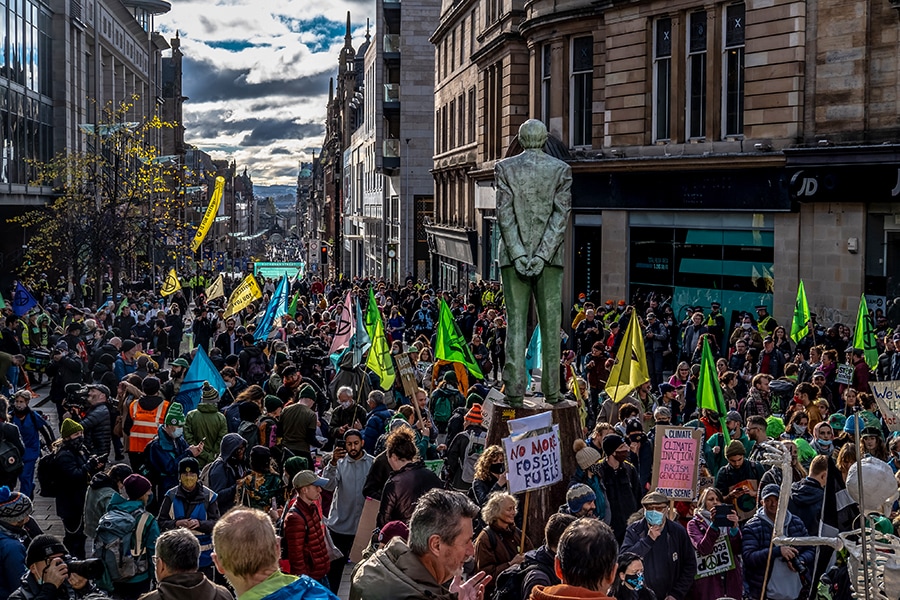
Can climate pledges lead to rising prices?
Banks, asset managers and insurers in recent days pledged to use trillions of dollars to achieve net-zero emissions targets as pension funds and other big investors move to divest trillions more from the fossil fuel industry
 Demonstrators calling for action on the climite crisis march in Glasgow, Scotland during the COP26 Summit, Nov. 3, 2021. Leaders of the world’s biggest financial firms, including some who made pledges here in Glasgow, are making largely speculative claims about the unintended consequences of a rush to transition away from fossil fuels; Image: Andrew Testa/The New York Times
Demonstrators calling for action on the climite crisis march in Glasgow, Scotland during the COP26 Summit, Nov. 3, 2021. Leaders of the world’s biggest financial firms, including some who made pledges here in Glasgow, are making largely speculative claims about the unintended consequences of a rush to transition away from fossil fuels; Image: Andrew Testa/The New York Times
Big business finally seems to be taking the climate crisis seriously. After years spent lurking on the sidelines, CEOs of the world’s largest banks, companies and investment firms this week took a spot at the center of the debate at COP26.
Banks, asset managers and insurers in recent days pledged to use trillions of dollars to achieve net-zero emissions targets as pension funds and other big investors move to divest trillions more from the fossil fuel industry.
Yet some leaders of the world’s biggest financial firms — including some who were part of pledges made at the climate summit in Glasgow — are warning that the rush to rapidly transition away from a carbon-intensive energy system could unleash unintended consequences that would jeopardize the world’s economic recovery in the near term.
While some of their concerns are so far largely speculative, they suggest that less investment in fossil fuel production could send energy prices soaring and that divestment could make it harder to monitor dirty energy production.
Speaking at a conference in Saudi Arabia last week, Stephen Schwarzman, CEO of private equity firm Blackstone, said the growing number of institutional investors pledging to divest their holdings from fossil fuel companies was making it harder for oil and gas producers to finance production.
©2019 New York Times News Service







